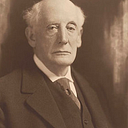The New Conservative War on Capitalism
Dan Hitchens, in The New Statesman makes some points I’ve been pushing for sometime now. He notes that in England, “By liberating the market, Thatcherism might have helped to create a country that wasn’t very, well, conservative.” Capitalism is not consistent with the embrace of the traditional as capitalists make profits by innovation not by clinging to the past.
[Norman] Tebbit was right to wonder whether conservatism should be synonymous with unfettered capitalism. Conservatives are meant to love the old, settled things; capitalism prefers the new and “disruptive”. Conservatives, in theory, support families and communities; capitalism, as Tebbit noted, is individualistic.
Other Thatcher advisers weren’t so surprised about this; Samuel Brittan argued capitalism “set in motion a train of events and ideas which eventually undermined the status-ridden, conventional society of the time and brought into being the more tolerant England of today.”
Some years ago I wrote:
Social conservatism is undermined by, and inconsistent with free, or depoliticized markets. More specifically depoliticized markets undermine the sort of static social structure conservatives yearn for. Far more consistent with such goals is a system of state, or bureaucratic socialism. Social conservatism is not achievable with depoliticized markets operating within a system of limited government. The very nature of the markets themselves undermines the goals of the conservative.
I argued freedom is not conducive to the static society yearned for by social conservatives.
Depoliticized markets, where people are free to make their own decisions, are not conducive to the static society. They are dynamic. The economist Joseph Schumpeter once referred to free market forces as “creative destruction.” We see that in the death of old industries replaced by new ones, of stagnant corporations bought out by more dynamic ones. But, free societies also engage in creative destruction of social values. Old values die; new values replace them. And this process terrifies the social conservative.
The inescapable conclusion is social conservatives would have to stab economic freedom in the back in order to preserve the antiquated social structure for which they yearn. Since the 80s I’ve been arguing markets undermine conservative social values and for the last twenty years I’ve been forced to the conclusion that conservatives would eventually wage war on capitalism — they had no other choice. Their social values and their economics were contradictory. And “eventually” is now here!
Conservatives are used to holding contradictory notions but at some point the social changes they hate would override the markets they claimed to love. It was inevitable they would turn on capitalism and betray it.
Today God’s Own Party, under the leadership of Trump, is happily flinging daggers into economic freedom. The increasingly fascistic Tucker Carlson told a conservative conference: “Libertarians tell us that’s how markets work — consenting adults making voluntary decisions about how to live their lives. OK. But it’s also disgusting.” Carlson even revived an old anti-Semitic conspiracy theory when he referred to “a libertarian zealot controlled by the banks.” Certainly the anti-Semitic Right and Left have often claimed Jewish bankers control the world. Anti-Semitism was a favorite talking point of Marxists and Socialists for much of history.
The regulatory state and state socialism are both inherently conservative systems, where those Mises called the “old men” rule by edict. He said the first thing one had to do in the bureaucratic system was,
… to obtain the consent of old men accustomed to doing things in prescribed ways, and no longer open to new ideas. No progress and no reforms can be expected in a state of affairs where the first step is to obtain the consent of old men. The pioneers of new methods are considered rebels and are treated as such. For a bureaucratic mind, law abidance, i.e., clinging to the customary and antiquated is the first of all virtues.
Socialist Evan Luard agreed, “collective power is also conservative because within the democratic system, political parties and leaders are obliged to converge to a point near the average views of the majority… Because the majority are rarely in favor of important or imaginative changes, this inhibits any radical challenge to the status quo.” There is a reason the dictatorships embraced by Bernie Sanders have all been anti-gay: Venezuela, Cuba and the Soviet Union being prominent examples.
Hitchens provides a litany of attacks on capitalism by Trumpian conservatives, such as Marco Rubio claiming working people are “under attack from global economic elites.” (Another term often used to mean “the Jews” in conspiracy circles.) Hitchens says Rubio “ startled left-leaning economists by echoing their criticisms of financialisation and shareholder primacy.”
Startled they may be, but at some point the Left will have to understand what Conservatives are finally grasping: social liberalism and economic liberalism are package deals. The regulatory state is a socially rigid society and free markets allow for social freedom. In other words, if you want gay rights you want free markets. If you want social control and conformity you need a regulated, state-controlled market.
Please consider supporting these essays by making a one time donation or a monthly donation to help sustain them. If you get some value out of them, exchange some value for value.
Your support to fund these columns is important, visit our page at Patreon.

